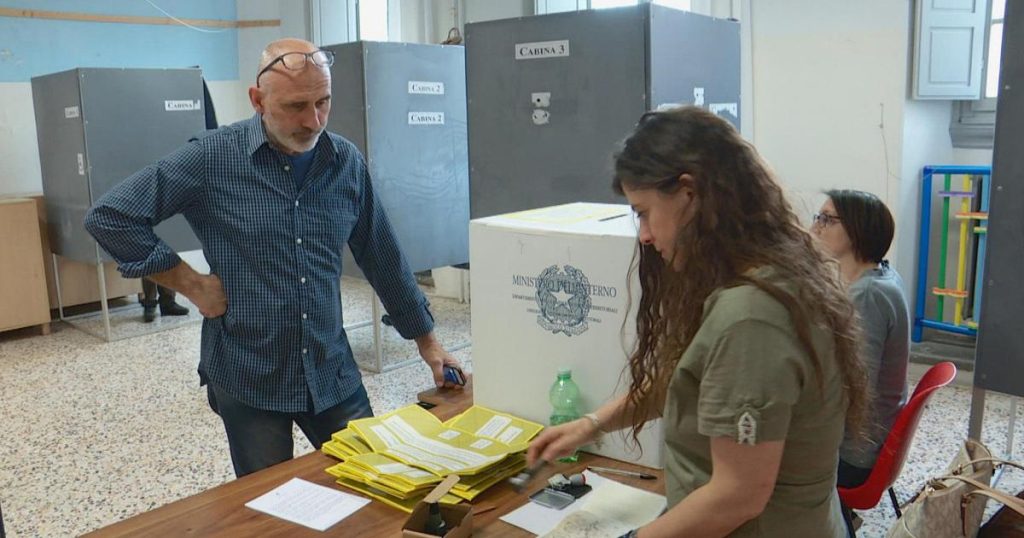In 14 cities in Italy, including 5 regional capital cities, runoff elections are taking place where no candidate received more than 50% of the vote in the first round. The focus is particularly on the important cities of Florence, Bari, Perugia, Potenza, and Campobasso. In Florence, the runoff is between Sara Funaro, a candidate from the Democratic Party supported by various other parties, and Eike Schmidt, a candidate from the center-right. Funaro received 42% of the vote in the first round, while Schmidt received just over 32%.
In Bari, the capital of Puglia, Vito Leccese from the center-left, now also supported by the Five Star Movement, is up against Fabio Romito from the center-right. Leccese received 48% of the vote in the first round, while Romito received 29.1%. In Perugia, two women are competing for the mayoral position: Vittoria Ferdinandi from the center-left and Margherita Scoccia from the united center-right. The race is expected to be a close one. In Campobasso, after a mistake in counting the votes, the runoff is between Aldo de Benedittis from the center-right and Marialuisa Forte from the center-left. De Benedittis is ahead based on the first round numbers, but the race is still open.
The city of Potenza also has a close race with Francesco Fanelli from the center-right leading in the first round against Vincenzo Telesca from the center-left, also supported by the Five Star Movement. Other cities where runoff elections are taking place include Avellino, Caltanissetta, Cremona, Lecce, Rovigo, Urbino, Verbania, Vercelli, and Vibo Valentia. The outcomes in these cities will have an impact on the political landscape in Italy and may indicate trends for future elections.
Overall, the runoff elections in the 14 cities in Italy are crucial in determining the mayors of these important municipalities. The alliances between different parties are shifting, with the Democratic Party and the Five Star Movement coming together in some cities despite past tensions. The candidates from the center-right and the center-left are facing tough competition in several cities, with many races expected to be close. The involvement of different parties and movements, including civic groups and environmentalists, adds further complexity to the election dynamics.
The results of these runoff elections will not only determine the mayors of these cities but also indicate the political preferences of the residents in these regions. The outcomes could potentially influence national politics and future elections, shaping the political landscape in Italy. With various parties and movements involved in the races, the support of different groups and the ability to form alliances has played a significant role in determining the outcomes of the first round, with the runoff elections now being closely watched by political analysts and observers.


